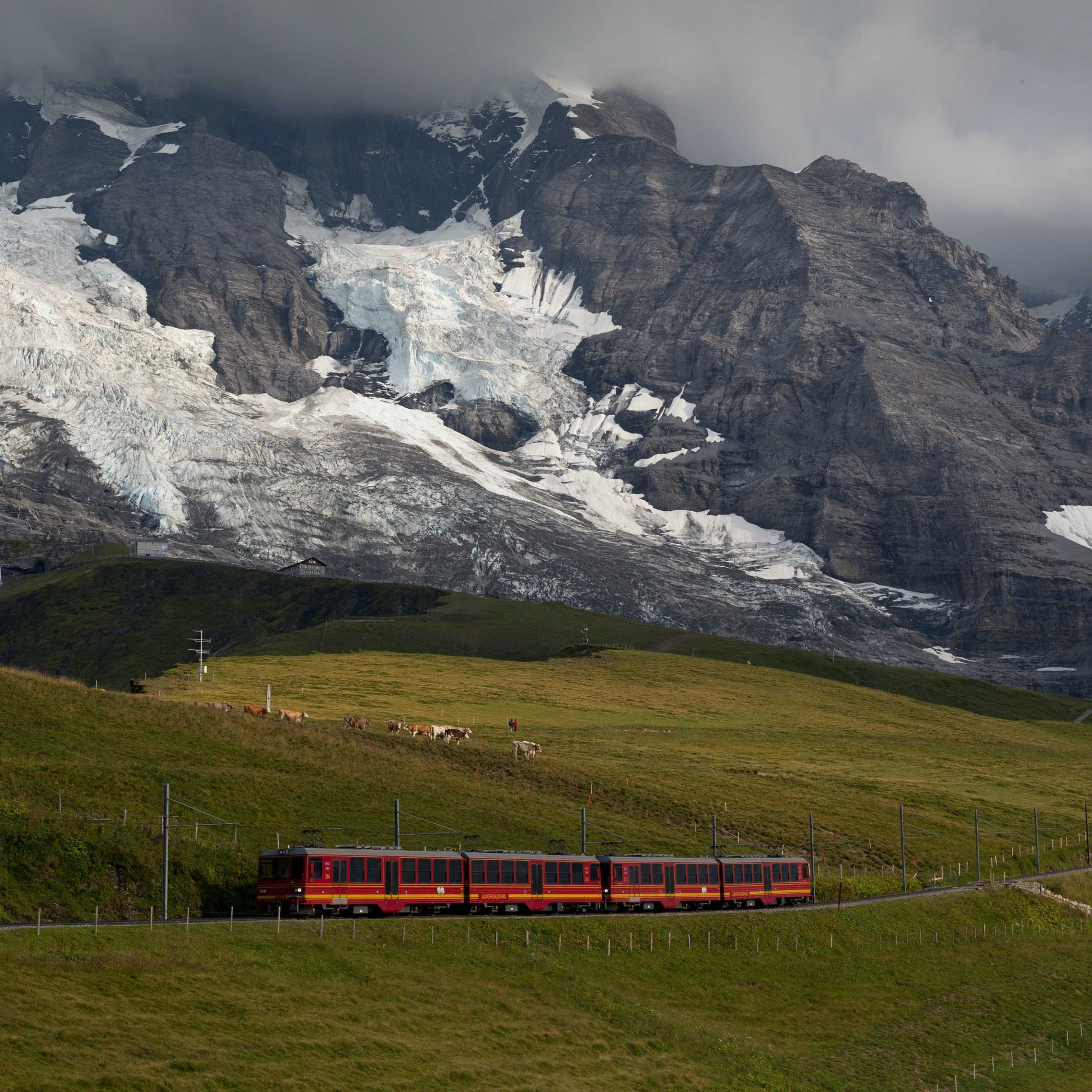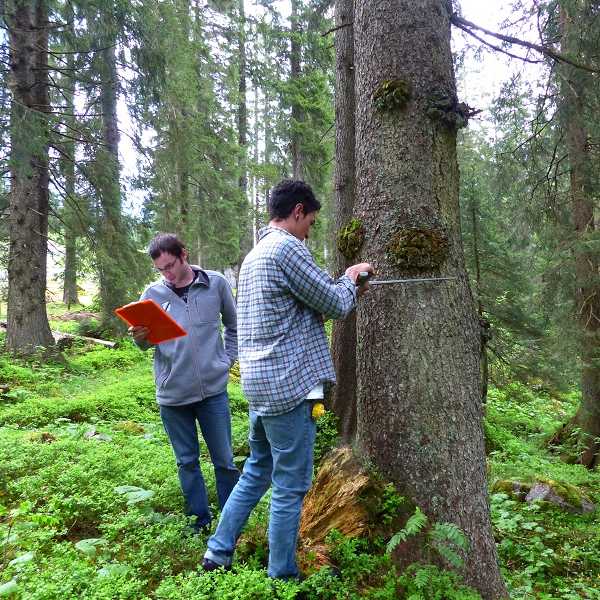Goal 15: Life on Land
Protect, restore and promote sustainable use of terrestrial ecosystems
The conservation and sustainable use of biodiversity are vital to social and economic development as well as to humanity’s survival. The loss in forest area threatens human prosperity, with poor rural populations particularly affected. Biodiversity and forests contribute to poverty reduction. Goal 15 calls for the conservation, restoration and sustainable use of ecosystems, with the aim of halting deforestation, restoring degraded forests and substantially increasing reforestation. It also advocates combating desertification by 2030 and restoring land affected by desertification, drought and floods. To protect biodiversity, Goal 15 calls for urgent measures to end poaching and trafficking of protected plant and animal species.
Source: www.eda.admin.ch/agenda2030 (edited)
Contributions of ETH Zurich (examples)
Within the framework of its core areas of research, education, campus and dialog with society, ETH Zurich contributes to Goal 15, for example, by the following activities:
Strategic games for sustainable palm oil
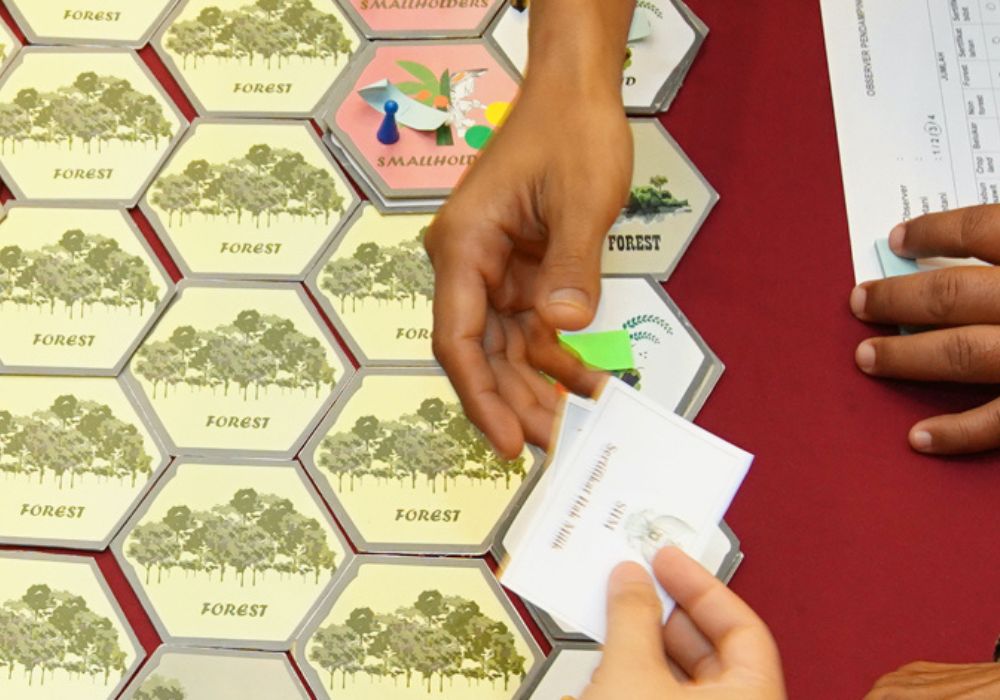
At the Ecosystem Management Group, efforts are made to revolutionize palm oil production, a leading cause of deforestation and land use change in tropical regions. The Oil Palm Adaptive Landscape project seeks to provide sustainable alternatives for oil palm expansion. By using strategic games based on integrated models, stakeholders, including farmers, can envision diverse oil palm cultivation scenarios that account for social, economic, and ecological factors. By producing accessible resources like videos and policy briefs, the project aims to steer oil palm production towards a more inclusive and sustainable direction. Read more here.
Managing forests for future generations
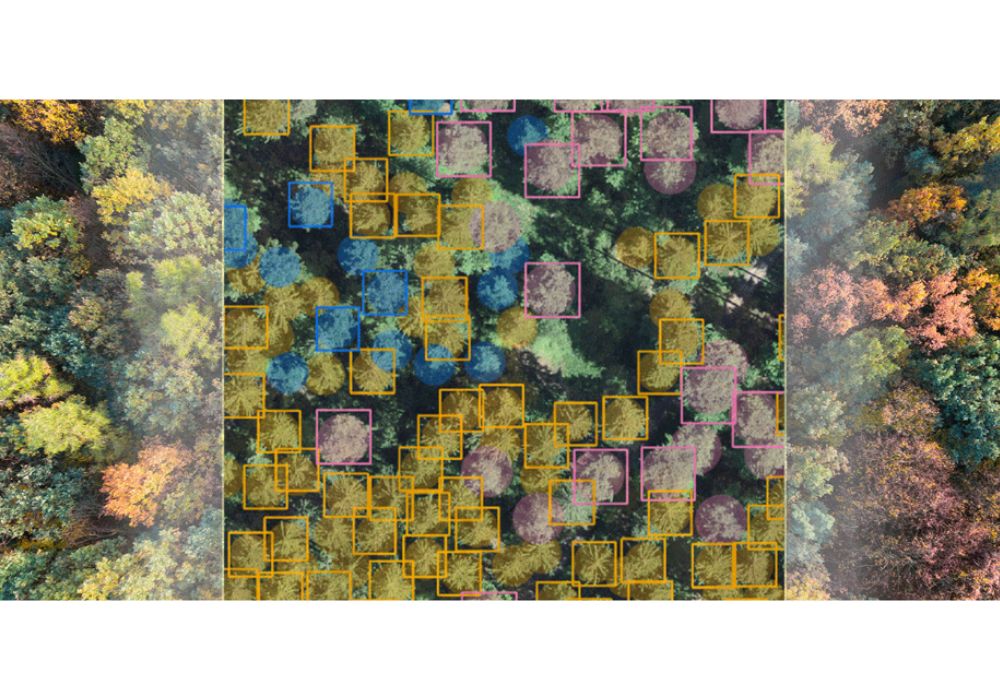
How can forests be sustainably managed? The work of the Forest Resource Management Group encompasses the development of innovative approaches for forest inventory, decision support systems for managing at-risk forests, and tools for democratizing knowledge about forest management. This endeavor is pivotal in addressing numerous Sustainable Development Goals (SDGs), as forests are a cornerstone for various social and environmental benefits. They provide clean water, protect against natural hazards, supply wood and timber, and are a sanctuary for diverse wildlife. However, the longevity of these benefits is at risk due to current management practices. The research at ETH Zurich is poised to transform forest management, ensuring sustainable utilization and expanding their benefits, hence contributing to poverty reduction, food security, clean water provision, renewable energy sources, climate change mitigation, and biodiversity preservation. This holistic approach underscores the forest's role in fostering a sustainable future, necessitating a paradigm shift in transportation, energy, construction, and building industries. Read more here.
Making the most of healthy grasslands
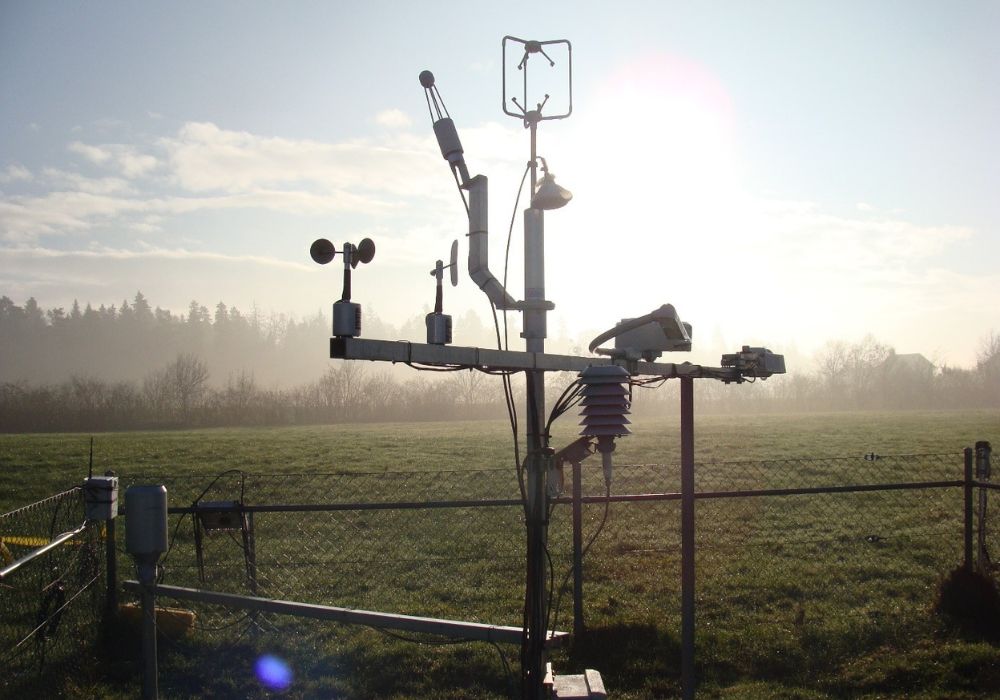
The work of the Grassland Sciences Group transcends various disciplines, from soil science to ecosystem ecology, aiming to uncover the dynamics of grasslands, croplands, and forests. With a spotlight on functional biodiversity and greenhouse gas exchange, they strive to comprehend the ecosystems' responses to climate change, land use, and biodiversity loss. Their quest involves the balance between food production and carbon storage, alongside investigating the influence of climate extremes and management practices on ecosystems. The team is currently focusing on understanding nitrous oxide emissions from croplands and grasslands, as well as unraveling the benefits of plant diversity in grasslands. Join them as they navigate through these complex ecosystems, seeking sustainable solutions and pondering the far-reaching impacts of our actions on the environment. Read more here.
Sustainable Land Use
The aim of the Institute of Terrestrial Ecosystems (ITES) research is to strengthen the scientific basis for the sustainable use of terrestrial natural resources. The Institute for Spatial and Landscape Development (IRL) envisions its science as transformative, having the power to support the negotiation between the three basic aspects – economic, environmental, social – for achieving a sustainable spatial and landscape development.
Exploring Our Planet
focusTerra is the Earth Science Research and Information Centre of ETH Zurich. In an inspiring environment and in easily understandable terms, visitors learn more about the complex processes within and on our planet. Through exhibitions and activities, focusTerra wants to encourage visitors to treat nature responsibly.

Studying Sustainable Use of Natural Resources
As part of the Bachelor’s degree in Environmental Sciences, ETH Zurich offers a specialisation in Forest and Landscape. It shows the importance of forests and landscapes for people’s well-being and gives students an introduction to ways of managing forests and landscapes sustainably. In the specialisation in Forest and Landscape Management of the Master's degree, students learn to identify, analyse and resolve the challenges of sustainable use of natural resources.
Lived Sustainability on Campus
Sustainable Campus Development
The master plan Campus Hönggerberg 2040 details how ETH Zurich will expand the Hönggerberg campus over the coming decades. Emphasis is placed on green and open spaces with simultaneous maintenance of the surrounding recreational area. Open spaces are also of great importance in the planning of the external page District Central Zurich (only available in German).
Nature-Oriented Garden Care
In the gardens on the Hönggerberg campus, the focus is on sustainable, low-impact care. Among other things, dry stone walls provide a refuge for amphibians and insects, nesting sites host wild bees and, where necessary, pests are controlled in an organic manner.
Do-It-Yourself
The community garden SeedCity was built in 2010 as part of a student project. On an area of approximately 1,200 m², an oasis of biodiversity has been created that is open to students, employees and residents (external page more information only available in German).
